Turn any article into a podcast. Upgrade now to start listening.
Premium Members can share articles with friends & family to bypass the paywall.
Most editions of this newsletter are long-winded variations of “I told you so,” but sometimes the president’s second administration resembles his first so closely that it would feel silly to say it.
If I had predicted that in 2025 he would hijack a press conference about scientific guidance to riff on his own dim hunches about medicine, as he did at yesterday’s White House event, I’d sound ridiculous boasting about my foresight. We’ve all seen that movie before! No one deserves credit for expecting a sequel to recycle certain elements from the original.
The point of Monday’s presser was to allege that women who take Tylenol during pregnancy might be increasing their child’s chances of developing autism. Emphasis on “might”: Donald Trump’s own Food and Drug Administration is unwilling to assert a causal connection, limiting itself to noting a possible “association” based on some studies.
But a cautious advisory doesn’t make for good television, so the president was more forceful when he came to the mic. “With Tylenol, don't take it. Don’t take it,” he said, repeating himself for emphasis. He recommended that pregnant women running a fever try to “tough it out” if they can.
The first thing to say about this momentous press appearance, which could potentially influence millions of people’s medical decisions, is that he obviously didn’t prepare for it. He didn’t even practice how to pronounce “acetaminophen.”
As a non-paying reader, you are receiving a truncated version of Boiling Frogs. You can read Nick's full newsletter by becoming a member here.
He prides himself on speaking extemporaneously in public, enough so that he’s coined a term for his technique, but White House announcements about public health are up there with nuclear saber-rattling as moments when the president absolutely should stick to a script. Instead, Trump rambled about how avoiding Tylenol has supposedly spared Cuba and the Amish from autism (wrong on both counts) and tossed in a little free association about how there’s “too much liquid” in the child vaccine schedule for tiny bodies. The measles/mumps/rubella shot should be broken up into separate shots, he advised, adding that his advice was based on “what I feel.”
The risk that he has now ignited a global panic over Tylenol and/or the MMR shot is sufficiently great that the UK’s health secretary felt obliged to warn Britons on Monday, “Don’t pay any attention whatsoever to what Donald Trump says about medicine.”
Another thing to say about the event is that the new policy was seemingly made without regard to whether it advances or hinders the White House’s long-term goals.
That’s a recurring theme in Trump 2.0. Tariffs, for instance, were supposed to reduce China’s economic power and restore American manufacturing. Instead, Trump turned around and tariffed the world, driving global opinion toward the Chinese and thrusting the U.S. manufacturing sector into a contraction. He courted India’s leader in his first term, eyeing him as a potential counterweight to Beijing, then blew up the relationship in a matter of weeks this summer for reasons of pride and short-sighted trade protectionism. He got a splashy photo op out of his summit with Vladimir Putin that achieved nothing of consequence except convincing some European allies that they should spend their defense budgets at home rather than in a newly undependable America.
The Tylenol panic is another example. Like practically every government on earth, the Trump administration is alarmed by declining birth rates and looking for ways to encourage Americans to have more children. What better strategy than by … warning women that they should “tough it out” if they have a fever during pregnancy, and implying that if they don’t it’ll be their fault if their child emerges with something amiss neurologically?
A third thing to say here is that the advice he gave wasn’t bad in the sense of merely being wrong. True to form, it was bad in the sense that it’ll almost certainly do more harm than good.
Causation and correlation.
A pregnant woman who heard about Monday’s press conference now has three options if she has a fever. She can take Tylenol, notwithstanding the best practices of the federal government, and suffer through a bout of terror that she’s harming her baby by doing so.
A second thing she can do is switch to a different medication like Advil on the assumption that, because there’s been no presidential warning about it, it must be safer than Tylenol. But she’d be wrong: Ibuprofen is much more likely to cause miscarriage than acetaminophen is. That’s why Trump urged women to “tough it out” rather than take an alternative fever-reducer, but it’s anyone’s guess how many made it past the “don’t take Tylenol” headline to hear that part of his remarks.
The third thing women can do is, well, tough it out and fight off the fever without help. But that’s a terrible idea. “The Society for Maternal-Fetal Medicine, which recommends using acetaminophen to treat fever and pain in pregnant women, says that untreated fever can cause grave harms such as miscarriage, birth defects or premature birth, especially early in a pregnancy,” NPR reported.
In fact, prolonged fever during pregnancy might itself be a cause of autism. One scientist told Bloomberg that, according to her research, the risk of the diagnosis was 40 percent higher in kids whose mothers didn’t use acetaminophen while feverish. That may explain the correlation in some (but not all) studies between Tylenol use and autistic offspring: It’s not the drug itself that’s affecting fetal development, perhaps, but the illness that the drug was used to treat.
If so, “toughing it out” may lead to more children developing autism, not fewer.
The idea that there’s any one cause for autism is frankly silly, though. “Scientists have identified hundreds of genes that are associated with the development of autism-like symptoms,” Dylan Scott noted at Vox. Studies show that twins have a vastly greater chance of both children being diagnosed as autistic if they’re identical—that is, if they have the exact same genes—than if they’re fraternal. The sheer diversity in how autism presents behaviorally suggests that the condition is influenced by multiple factors.
The fact that Tylenol has been around for 70 years also makes it unlikely that it’s a prime cause of an autism “epidemic” that’s been raging for 20 or so. “Diagnoses of autism have risen over the past two decades, though use of acetaminophen has not—remaining largely steady over that time,” NPR notes. A better explanation for why cases have risen is that the definition of autism in the Diagnostic and Statistical Manual of Mental Disorders was expanded in 1994 to cover a wider array of symptoms, producing many more diagnoses (and more resources for patients) as well as higher public awareness of the condition.
Toss in the fact that adults today are having children at older ages, another known risk factor for Autism Spectrum Disorder, and much of “the epidemic” can be explained without resorting to dubious pharmaceutical or environmental villains. No wonder one bioethicist told the Associated Press that Monday’s press conference was “the saddest display of a lack of evidence, rumors, recycling old myths, lousy advice, outright lies, and dangerous advice I have ever witnessed by anyone in authority.”
The icing on the cake was the president’s gratuitous plea to break up the MMR vaccine, which had nothing to do with the subject at hand but also stands a high chance of needlessly harming American kids. The reason infants are vaccinated for measles, mumps, and rubella all at once is because each of those viruses is dangerous to their fledgling immune systems; the longer you wait to immunize them for each—which is what spacing out the shots would require—the greater the risk they’ll be infected before they’re protected.
Trump didn’t need to mention the vaccine, but he did because that’s what being president means to him. He gets to go on TV, blather about whatever’s on his mind without preparing, and trust that no one who supports him will hold him the least bit accountable for the damage he does. Sweet gig if you can get it.
Here’s my question, though: Why are he, Robert F. Kennedy Jr., and so many other “Make America Healthy Again” apparatchiks so obsessed with autism? This administration has no qualms about slashing funding for research into life-and-death health problems like cancer. How does cancer get shrugged off while a correlation-not-causation determination about autism receives a presidential press conference?
Strength and weakness.
“It’s because they care deeply about children,” you might say. I don’t think so.
More likely is that autism is a mystery, and populists can’t resist a good mystery.
America has endured many epidemics over the last 25 years—obesity, opioids, COVID—but there’s nothing suspicious about any of them. The causes are clear. Autism is unique in that diagnoses have risen to the point where “on the spectrum” has entered the vernacular, yet no one knows precisely why. The condition is now reasonably common, it produces observable symptoms in many cases, and it disrupts children’s social development in a way that risks setting them back permanently. But not only is there no known cure, there’s no known cause.
It’s suspicious. And so if your understanding of politics and/or medicine reliably runs toward suspicions of secret malfeasance, you’re destined to zero in on autism.
It’s not a coincidence that the condition has been a hobby horse of anti-vaxxers for years, most notably the guy who stood a few feet behind the president at yesterday’s announcement. Watching Bobby Kennedy Jr.’s health bureaucracy pull a surprise switcheroo by suggesting that Tylenol, not vaccines, is the true culprit in the autism “epidemic” seemed to confirm that this has never been about earnestly deducing cause and effect. It’s always been about blaming the autism mystery on some “unnatural” intervention by the medical establishment. Acetaminophen, vaccination—it doesn’t much matter as long as there’s a simple explanation that validates one’s suspicions that the elites have once again harmed the average joe.
I wonder too if there’s a class component to Trump’s and Kennedy’s preoccupation with the condition. They’re funny populists insofar as each belongs to a family famously associated with wealth and lofty social status, and families like that tend to care about keeping up appearances. (The Kennedys care a lot.) For all of his populist pretensions, for instance, the president isn’t above bragging about his Ivy League pedigree. Autism is the sort of condition that I’d expect to hit harder in higher-income social circles like theirs because a child’s diagnosis means the next generation of the family might not maintain its social position.
That’s not to say that lower-class parents are indifferent to autism, of course, but they may have more urgent priorities—like food and basic medical care—for a young child than worrying about whether he or she ends up on the spectrum. The Trumps and Kennedys don’t need to think about that. It stands to reason that an administration that’s willing to slash Medicaid would also share the medical priorities of a more professional cohort by spending its time fixated on whether the heir apparent to the family legacy isn’t “odd.”
Beyond all that, I think the Trump White House’s nostalgic vision of national greatness informs its anxiety about autism.
All of us should worry that cases of a developmental disorder have seemingly been rising for years, but nationalists with a fetish for dominance and strength should really worry, arguably to the point of obsession. You can’t make America great again by making it more like it used to be if the population is literally unable to be more like it used to be. Anything that smacks of inherent disability to them will be seen as proof of “weakness” in a way that cancer, say, will not.
I thought of his comment about immigrants “poisoning the blood of our country” even before I saw that Jonathan Last flagged it in his piece today. That wasn’t the only time Trump has lapsed into biological rhetoric when diagnosing threats to America either. Like many nationalists, his tribalism doesn’t end at his nation’s borders: Biological forms of kinship, at least as perceived by Trump, also forge certain tribal bonds.
So, yeah, a biological phenomenon in which more members of his tribe than ever before are becoming “neuro-atypical” is bound to occupy outsized space in his political agenda.
Which would be fine if he had staffed up with serious scientists armed with the funding needed to tackle the challenge of autism seriously. It’s a legitimate problem. By staffing up instead with the dumbest Kennedy and accepting “uh, it’s Tylenol, boss” as the unlikely silver-bullet explanation, he ended up with the worst of all worlds—bad public-health priorities and a would-be solution that not only won’t solve the problem but might plausibly make it worse.
America’s imbeciles have much to answer for.
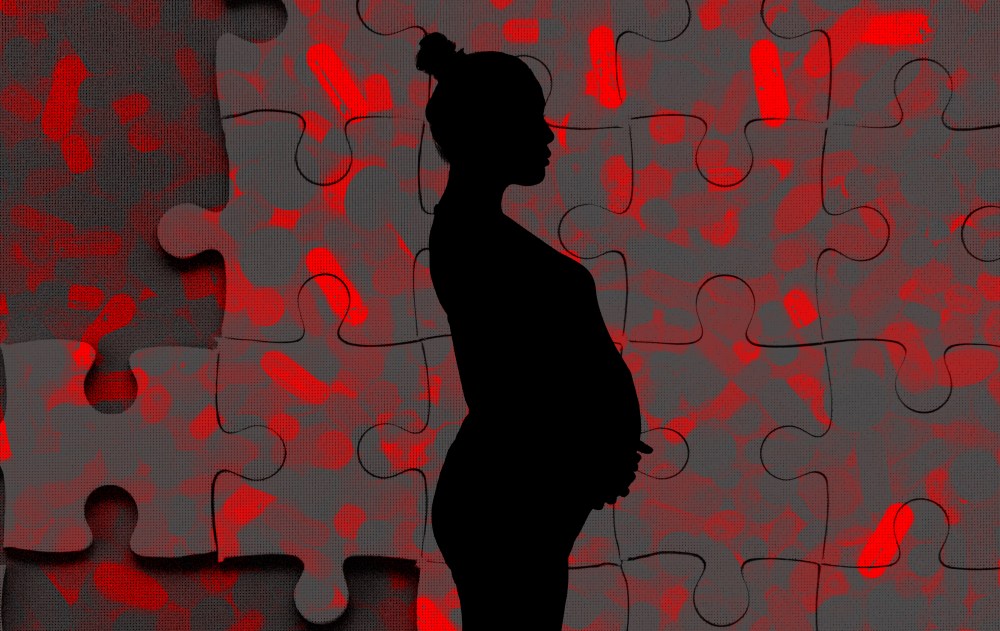


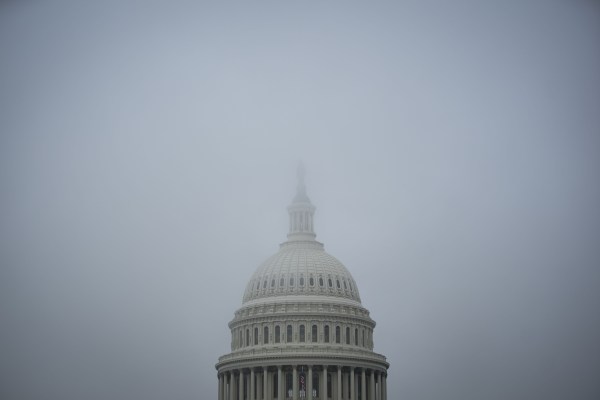
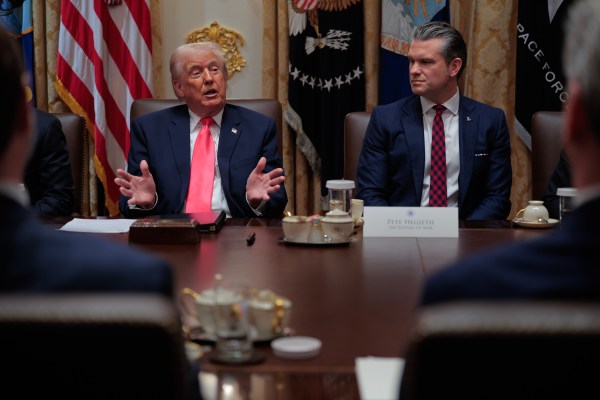
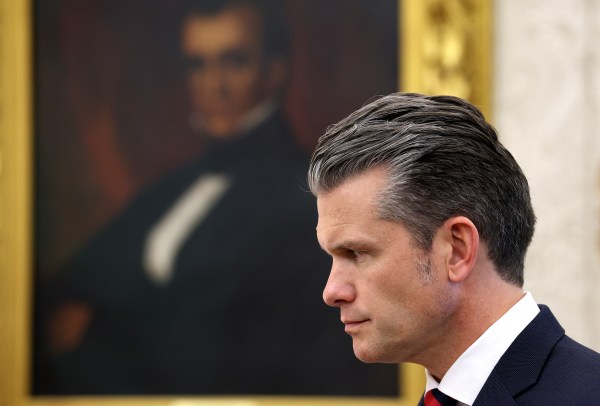
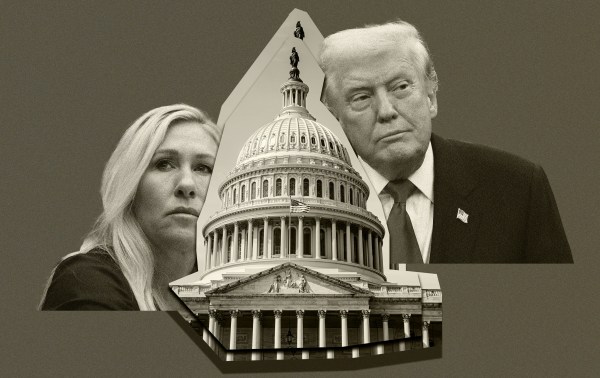

Please note that we at The Dispatch hold ourselves, our work, and our commenters to a higher standard than other places on the internet. We welcome comments that foster genuine debate or discussion—including comments critical of us or our work—but responses that include ad hominem attacks on fellow Dispatch members or are intended to stoke fear and anger may be moderated.
With your membership, you only have the ability to comment on The Morning Dispatch articles. Consider upgrading to join the conversation everywhere.